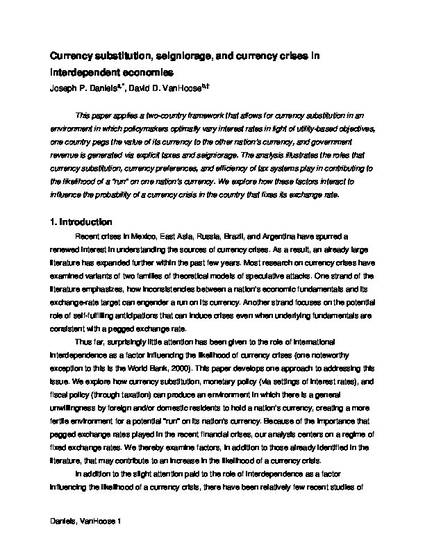
Article
Currency Substitution, Seigniorage, and Currency Crises in Interdependent Economies
Journal of Economics and Business
Document Type
Article
Language
eng
Format of Original
12 p.
Publication Date
5-1-2003
Publisher
Elsevier
Disciplines
Abstract
This paper applies a two-country framework that allows for currency substitution in an environment in which policymakers optimally vary interest rates in light of utility-based objectives, one country pegs the value of its currency to the other nation’s currency, and government revenue is generated via explicit taxes and seigniorage. The analysis illustrates the roles that currency substitution, currency preferences, and efficiency of tax systems play in contributing to the likelihood of a “run” on one nation’s currency. We explore how these factors interact to influence the probability of a currency crisis in the country that fixes its exchange rate.
Creative Commons License
Creative Commons Attribution-NonCommercial-No Derivative Works 4.0 International
Citation Information
Joseph P. Daniels and David D. VanHoose. "Currency Substitution, Seigniorage, and Currency Crises in Interdependent Economies" Journal of Economics and Business (2003) ISSN: 0148-6195 Available at: http://works.bepress.com/joseph_daniels/55/

Accepted version. Journal of Economics and Business, Vol. 55, No. 3 (May/June 2003): 221-232. DOI.Published under Creative Commons license Attribution-NonCommercial-NoDerivatives 4.0 International.